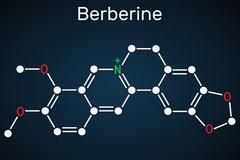It’s flooding social media but is this plant compound effective, beneficial and safe to take?
Nowhere is this more noticeable than the online wellness space, where a variety of new products are being marketed as the latest weight reduction aid. One supplement that is flooding social media feeds is berberine – reported to tackle sugar cravings and labelled “nature’s Ozempic.”
But what is it and does it really help with losing weight in a healthy, sustainable way?
What is berberine?
Berberine is an alkaloid or plant compound found in tree turmeric, barberry, goldenseal, oregon grape, and coptis. “These plants have been used for centuries in traditional medicines to help with conditions like digestive issues, jaundice, skin and eye problems.
Today, berberine is most commonly taken as an oral supplement, although in some cases it may also be used topically or given intravenously,” says Aoife Quinn, Registered Dietitian at Orla Walsh Nutrition.
“More recently, it has gained attention for its potential role in supporting blood sugar control, cholesterol levels, and overall metabolic health.”
How does berberine work in the body?
Berberine is believed to work by activating an enzyme called AMPK, which helps regulate metabolism.
“This may improve how the body uses insulin, reduce sugar production in the liver, and slow the breakdown of carbohydrates in the gut. It may also help cells process sugar more effectively and support a healthier balance of gut bacteria.
In addition, berberine has antioxidant and anti-inflammatory effects, which may contribute to its potential health benefits,” says Quinn.
Berberine is not routinely recommended as part of a balanced diet by registered dietitians or qualified healthcare professionals
The research to support the inclusion of berberine in the diet is still emerging, so it isn’t widely recommended by dietitians. However, early evidence suggests it may be beneficial for some.
“Berberine is not routinely recommended as part of a balanced diet by registered dietitians or qualified healthcare professionals.
“However, as the research is promising (but not yet conclusive), its use may be discussed in conjunction with diet, exercise and other lifestyle changes,” says Quinn.

Berberine may prove popular in the future as a weight-loss aid. Photo: Stock/Getty
Are there benefits to taking berberine?
Berberine’s big selling point is that it helps support the metabolism and reduces sugar cravings. Initial evidence suggests it can help with improving cholesterol levels and lowering blood sugar.
“Some promising research suggests berberine may support heart and metabolic health. It has been shown to help lower “bad” cholesterol, total cholesterol, and triglycerides.
In people with type 2 diabetes, it may improve blood sugar control and has in some studies worked as well as metformin, a common diabetes medication,” says Quinn.
“For those with Polycystic Ovary Syndrome (PCOS) and insulin resistance, berberine may also help by reducing testosterone, improving cholesterol levels, lowering blood sugar, and making the body more responsive to insulin. However, more high-quality research is needed before we can really say if and how effective it is.”
Does it really help with weight loss?
While social media references to berberine as “nature’s Ozempic” are likely an exaggeration, the available evidence suggests it may help with modest weight reduction.
“Due to the potential influence berberine may have on improving insulin sensitivity, some research has suggested that supplementation can help in reducing cravings for high carbohydrate and sugary foods – often referred to as ‘food noise’,” explains Quinn.
“Some research also suggests it may lead to modest reductions in body weight and BMI, especially at higher doses over longer periods.”
However, more high-quality evidence is needed before healthcare professionals recommend berberine for weight management.
Dietitians prefer to take a holistic approach and look at nutrition and diet first, rather than focusing on supplements
“The studies so far are generally low in quality, with mixed results, and many involved people with existing health conditions such as diabetes or fatty liver disease. At this stage, the evidence isn’t strong enough to recommend berberine as an effective weight loss aid, and more high-quality research is needed,” says Quinn.
Dietitians prefer to take a holistic approach and look at nutrition and diet first, rather than focusing on supplements.
“I generally don’t recommend this supplement as there are more important issues to address first. As a dietitian I always promote a food first approach over supplements. If more evidence appears in time and these prove positive for type 2 diabetes and PCOS, it could possibly be something I look further into,” says Daniel Murphy, Registered Dietitian and Owner of Apex Nutrition.
Are there risks to taking berberine?
Berberine is considered to be low-risk if taken short term at the recommended dose. “Generally it seems to be safe and it’s recommended to stick to the dose recommendations on the product chosen. Longer term use needs more research. Higher doses have been reported to cause some GI issues such as flatulence, diarrhoea, constipation,” says Murphy.
To minimise any risks, it’s important to seek medical advice befoe taking berberine and follow the correct dosage.
“The recommended dose is 500mg-1,500mg per day. However, to minimise side effects, it is recommended to start with a lower dose and build up, alongside ensuring to take the supplements at mealtimes,” says Quinn.
Should I consider taking berberine?
Although supplements can play a role in achieving health goals, they are not a substitute for a balanced diet when it comes to making long-term changes.
“Consider a food-first approach to weight loss. No supplement will ever be able to substitute food and nutrition. Supplements are there to supplement the current diet so giving weight loss time through sustainable measures is always best,” says Murphy.
“I would recommend speaking with a dietitian first…If a supplement is proven to be safe, there’s no harm in trying it to test if it works but there are more important aspects to look at with weight loss like nutrition and exercise. “
Quinn agrees that supplements should not be a replacement for lifestyle changes for managing health conditions, particularly when the evidence base is still emerging.
